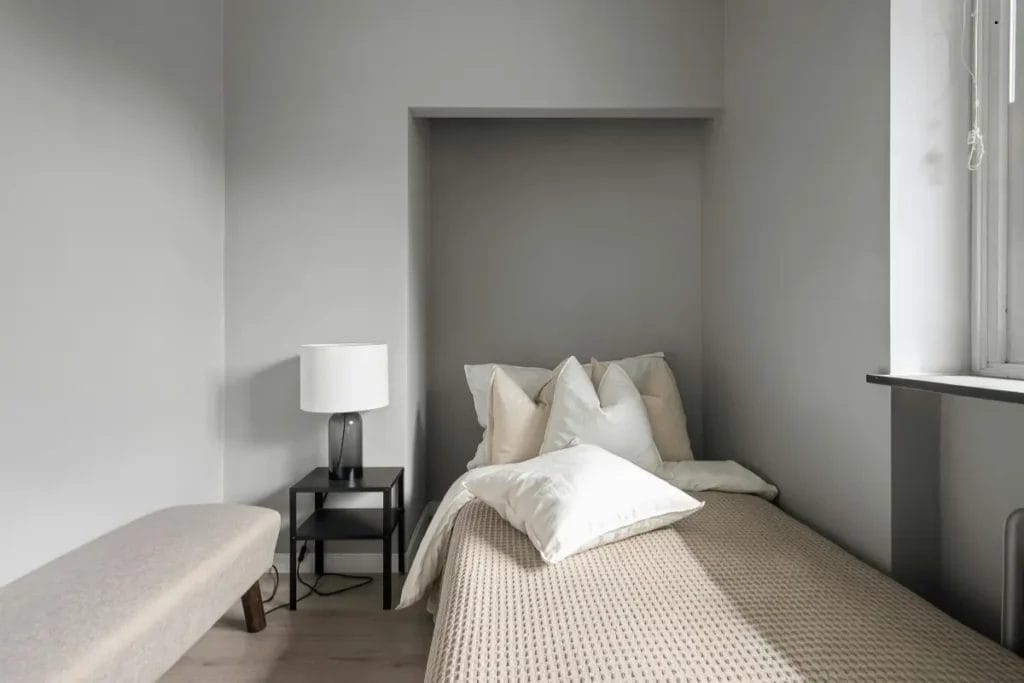Choosing the right bed is crucial for a restful night’s sleep and overall health. As a single person, you’ll need to balance comfort, support, and budget. While a larger bed might offer extra space, it could also be pricier. Consider these tradeoffs carefully to find what best suits your needs.
Factors to Consider When Choosing a Bed
When choosing the best bed for a single person, several important factors need to be considered. First, size plays a crucial role—too small, and you’ll feel cramped; too large, and the space may feel uninviting.
Material is equally significant, as it affects comfort and durability, but different materials can come with varying price tags. Comfort should always be a priority, but achieving the right level of support can be tricky.
Lastly, budget is a determining factor, and while cheaper beds may be tempting, they may lack long-term comfort or durability. Balancing these elements is key to finding the bed that suits both your needs and your budget.
The Best Bed Size For Single People
For single sleepers, choosing the right bed size is essential to ensure comfort and functionality. A bed that’s too small, like a twin, can feel cramped, limiting your ability to move around during the night.
On the other hand, opting for a larger bed, such as a full or queen, might provide ample space, but it can also feel isolating in a smaller room. Moreover, larger beds can take up more space, making the room appear crowded.
Finding the perfect size requires considering both your comfort needs and the room’s layout. Balancing space, comfort, and room size is key to ensuring you have a restful sleep environment.

Types of Mattresses: Which One Is Comfort for You?
The type of mattress you choose significantly affects your sleep quality and overall comfort. Innerspring mattresses are often the go-to for those who prefer a firmer feel with added support, but they can sometimes lack the contouring comfort that other types provide.
Memory foam mattresses, on the other hand, mold to your body shape, offering excellent pressure relief and comfort, though they may retain heat and feel too soft for some. Hybrid mattresses combine the best of both worlds, offering support with a spring system while providing the body-contouring benefits of memory foam.
Each option comes with its trade-offs, so balancing your comfort preferences, sleep position, and temperature needs is essential when selecting the ideal mattress for your bed.
Comfort Features to Look for in a Single Bed
When selecting a bed, it’s essential to consider comfort features that can significantly enhance your sleep experience. For instance, adjustable firmness allows you to customize the level of support, ensuring a more personalized sleep environment.
Cooling properties, like breathable materials or cooling gels, can help regulate body temperature, which is especially helpful for those who tend to overheat at night. Motion isolation is another crucial feature, especially if you share your bed with a pet or simply want uninterrupted sleep.
However, adding these features often comes with higher costs or a trade-off in mattress firmness. Therefore, it’s important to weigh your priorities carefully, balancing your comfort needs with your budget and preferences.
Popular Bed Styles for Single People
The style of your bed can greatly influence both your comfort and the overall aesthetic of your room. For instance, platform beds offer a sleek, modern look with a low-profile design, eliminating the need for a box spring.
However, they may not offer under-bed storage, which could be a consideration if space is limited. Daybeds, with their versatile design, can function as both a bed and a seating area, making them a great option for small rooms or multifunctional spaces.
On the other hand, lofted beds create additional storage space underneath, but they may not be ideal for those who prefer low-to-the-ground beds. Balancing style with practicality is key when choosing the right bed for your needs.
Conclusion
Investing in a quality bed is crucial for your long-term health and happiness. While it’s important to consider factors like comfort, size, and budget, choosing the right bed can significantly impact your sleep quality. Take the time to balance your needs and make an informed decision for restful nights ahead.
FAQs
1. What size bed is best for a single person?
The best bed size for a single person depends on personal preference and available space. A twin or twin XL is ideal for smaller rooms, while a full or queen provides more space to stretch out. Consider your room’s layout and whether you prefer more space or coziness.
2. What type of mattress is best for a single person?
It varies depending on your comfort needs. Innerspring mattresses offer firm support, while memory foam contours to your body, providing pressure relief. Hybrid mattresses combine both, offering a balance of support and comfort. Consider your sleep position, firmness preference, and temperature needs when choosing.
3. Is it worth investing in a more expensive bed?
While higher-priced beds may come with added comfort features like adjustable firmness or cooling technology, they aren’t always necessary for everyone. It’s important to balance your budget with your sleep needs. A moderately priced bed that suits your comfort preferences can still provide great quality sleep.